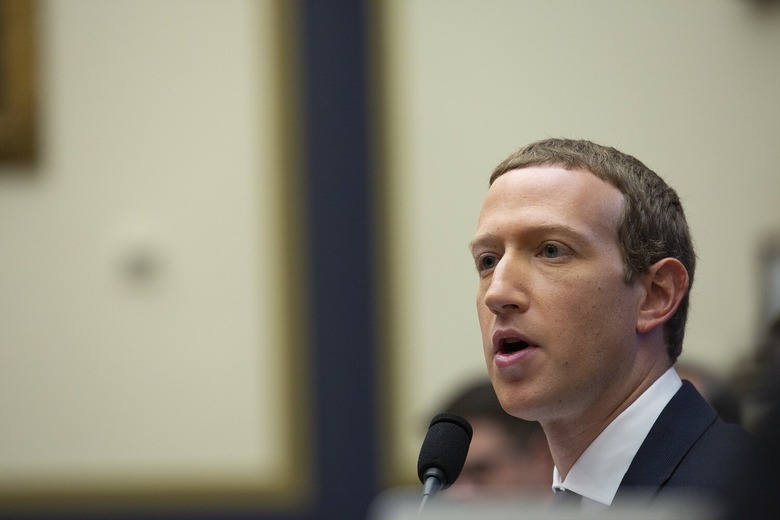Mark Zuckerberg's Own Phone Number Leaked In The Massive Facebook Hack
Facebook was hacked in August 2019, when attackers grabbed personal data for 533 million accounts, including emails and phone numbers. Earlier this year, the hack made the news as unknown individuals were selling access to the database online. For a fee, you could pair a Facebook user ID with a phone number or vice-versa, assuming the targeted person's data was included in the hack. The data breach then resurfaced a few days ago when people discovered that the database was posted on a forum. Facebook had a somewhat insensitive reaction to the new development, saying that the security vulnerability that allowed the hack had been fixed. The company neglected the fact that some of those emails and phone numbers did not change, and the breach might still impact some people. There is a way to check whether your data was included in the hack, which should help you take additional measures.
In an incredibly ironic twist, security researchers have found that Facebook CEO Mark Zuckerberg is one of the people whose data was leaked. Not only that, but the database included his phone number. As if that's not enough, researchers found that Zuckerberg happens to be a Signal user, the end-to-end encrypted chat app that WhatsApp users have been flocking to in recent months, following that other massive Facebook controversy.
Facebook's tone-deaf reaction to Saturday's news focused on Facebook's security and ignored the huge elephant in the room.
This is old data that was previously reported on in 2019. We found and fixed this issue in August 2019.
— Liz Bourgeois (@Liz_Shepherd) April 3, 2021
The personal data belonging to more than 533 million people is in the hands of hackers. And that sort of data will never change. Personal details like emails and phone numbers can be used to target individuals in various ways, even if Facebook's security protects everyone else from previous breaches.
The discovery that Mark Zuckerberg's Facebook account is included in the massive breach perfectly describes that. A person with access to the database found Zuckerberg in it. And it's not just phone numbers and emails the database contains. Luckily, a security researcher found the details, but anyone else with access to it has the information.
Regarding the #FacebookLeak, of the 533M people in the leak – the irony is that Mark Zuckerberg is regrettably included in the leak as well.
If journalists are struggling to get a statement from @facebook, maybe just give him a call, from the tel in the leak? 📞😂@GazTheJourno pic.twitter.com/lrqlwzFMjU
— Dave W. (@Daviey) April 3, 2021
Dave Walker did not share Zuckerberg's actual phone number, but his joke is one example of how that information can be used by people who shouldn't have access to it.
In a subsequent tweet, Walker found that the phone number associated with Zuckerberg's Facebook account is in use on Signal.
In another turn of events, Mark Zuckerberg also respects his own privacy, by using a chat app that has end-to-end encryption and isn't owned by @facebook
This is the number associated with his account from the recent facebook leak. https://t.co/AXbXrF4ZxE
— Dave W. (@Daviey) April 4, 2021
So not only was Zuckerberg's data stolen, but the leak also revealed he might be an active Signal user.
Signal saw a massive surge in downloads in early 2021 after WhatsApp announced a new privacy policy change that should have gone into effect on February 8th. Huge backlash from users forced Facebook to delay the privacy update to May 15th, as millions of people downloaded Signal and Telegram in response to the planned privacy changes.
Like WhatsApp, Signal offers end-to-end encryption for chats. WhatsApp will continue to provide the same encryption protection after the privacy changes are enforced. But the app will send more user data to Facebook related to e-commerce features in WhatsApp that users might not even use.
With the May 15th WhatsApp Terms of Service acceptance deadline fast approaching, Mark leads by example:https://t.co/Mt5YksaAxL
— Signal (@signalapp) April 6, 2021
The simplest reason for Zuckerberg being on Signal is that he's just experiencing the competition. One other explanation is that he might have to use Signal to stay in contact with people who might otherwise not touch WhatsApp.
Signal did not miss the chance to brilliantly troll Facebook and Zuckerberg, reminding people to switch to Signal before the May 15th WhatsApp Terms of Service acceptance deadline. "Mark leads by example," Signal said, linking to a story detailing the discovery that Zuckerberg's data was included in the 533 million hack and that he is a Signal user.
